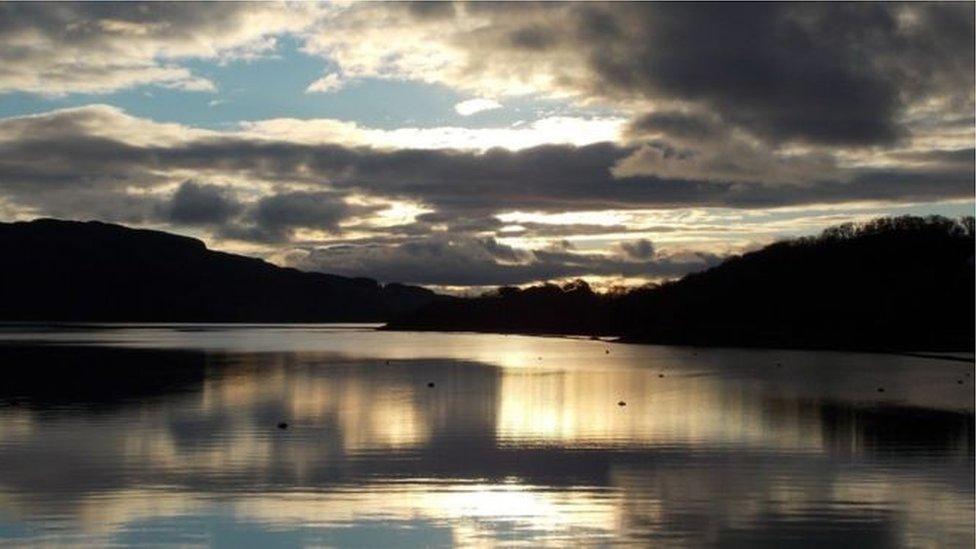Raised levels of toxins found in Argyll and Bute shellfish
- Published

Loch Melfort is one of the areas to have raised levels of algal toxins
People have been warned not to eat shellfish in parts of Argyll and Bute after raised levels of toxins were found.
Routine monitoring by Argyll and Bute Council discovered raised levels of algal toxins in Loch Melfort and Seil Sound.
The naturally-occurring toxins were above the "legally-permitted levels for harvest".
Members of the public have been asked not to gather them.
The toxins accumulate in molluscs such as mussels, oysters, cockles and razor clams, and when levels breach statutory limits, harvesting of affected species is prohibited.
'Risk to human health'
Elsewhere, raised levels of Escheria coli (E.coli) bacteria have been identified in Oitir Mhor Bay.
It follows the discovery of raised levels at Kerrera West, Loch Craignish, Kilfinichen Bay and Castle Stalker.
They were discovered by the council's environmental health team as part of their work to maintain the quality of shellfish.
Potential raised levels of E.coli were also found at Dunstaffnage, Kerrera East, Loch na Cille and Loch Riddon.
A council spokesman said: "Eating shellfish such as cockles, mussels, oysters and razor fish from affected areas can pose a risk to human health.
"Notices to warn the public and casual gatherers have been posted along the shore. Commercial shellfish harvesters in these areas have been contacted by the council and steps taken to postpone harvesting until bacterial levels subside.
"People are advised to avoid eating shellfish from these areas until further notice as a precaution. When levels subside, the warning notices will be removed."